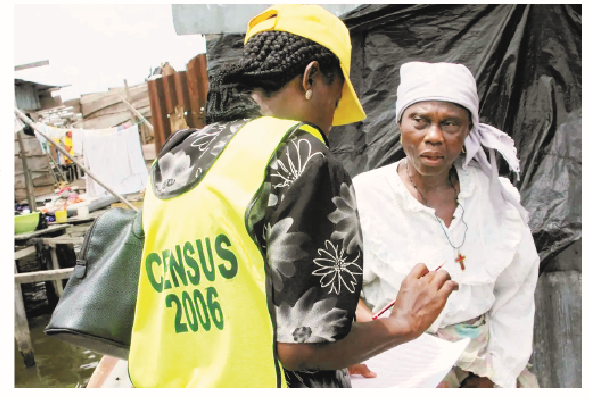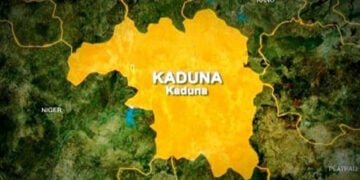Seventeen years after the last national headcount was held in 2006 and the one slated for 2023 by the immediate past President Muhammadu Buhari was twice postponed, there are fears that the exercise may not be held next year as anticipated.
These concerns are heightened by the recent revelation at the Senate that no provision was made for the National Population Commission (NPC) in the 2024 budget for the agency to conduct the census.
Members of the Senate Committee on Appropriations expressed shock when they were informed that there was no provision for the scheduled 2024 population and housing census in next year’s budget.
The chairman, Senate Committee on NPC, Senator Abdul Ningi (PDP, Bauchi Central), told his colleagues about the development when he presented a report on the NPC 2024 budget to the collating committee.
He told the committee that if the money for the census was not provided in the budget, the country would lose about N200 billion which the commission had already spent in its preparati on.
After intense preparations for the headcount slated for March 29, 2023, the then minister of information and culture, Lai Mohammed, told journalists after the Federal Executive Council (FEC) meeting that the census postponement decision was necessitated by the rescheduling of the governorship elections from March 11 to March 18.
He said FEC had approved N2.8 billion for the procurement of software for NPC to conduct the national census in May 2023.
Following speculations that the census was postponed because of paucity of funds, the federal commissioner of NPC in Plateau State, Mrs Cecilia Dapoet, said, “The census was earlier scheduled for May 3-7, 2023, but was postponed, giving rise to many insinuations in the public space regarding the reason for the postponement and these, even though mere speculations, had been given much media attention.
“The commission is compelled to take necessary steps to correct the impression that the 2023 Population and Housing Census is postponed because of lack of funds. The real reason is not money, but the government’s transition programme and post-election mood in the country. We all saw the cloud of uncertainty that hung above the nation after the elections and we were careful not to fall into some pitfalls and plunge the country into more trouble. We cannot take things for granted, and decided to postpone the exercise,” she said.
Before he left office, Buhari said his administration was leaving the conduct of the census to his successor, President Bola Tinubu.
RELATED: No Provision For Census Next Year – Senate
Against this background, the NPC continued its preparations for the exercise, which was tentatively fixed for early next year.
Concerns, however, mounted when it was revealed by the Senate that no provision was made for the headcount, implying it won’t hold in 2024.
But a source close to the NPC told LEADERSHIP that only President Tinubu can decide when the headcount will be held, even as he explained that the major work for the conduct of the census had been done, and expressed optimism that it may still be held next year.
NPC Must Account For N200bn – CSOs
When contacted on the development, some civil society organisations (CSOs) called on the federal government to investigate the NPC over money spent on census preparations.
CSOs contended that there is no way over N200 billion will be spent on census without the completion of the process, adding that the commission has no excuse not to present the 2024 budget that will lead to the completion of a process it had started.
The CSOs which spoke to LEADERSHIP include Transparency International (TI), the Civil Society Legislative Advocacy Centre (CISLAC) and the Transition Monitoring Group (TMG).
The NPC had clarified that the criticisms over the postponement of the 2023 Population and Housing Census, which was widely believed to be due to insufficient funds, was misinterpreted.
The commission explained that contrary to such insinuations, the NPC postponed the census exercise to save Nigeria from a national crisis.
Speaking through their leader, Awwal Musa Rafsanjani, the CSOs said the National Assembly should carry out its oversight function on NPC and investigate how the previous N200 billion was spent in the past and how the process can be completed in 2024.
“Let NPC explain to Nigerians what they have done with the N200 billion given to them in the past for the census. Nigeria can’t plan for development if we don’t know the number of people we have,” the CSOs said.
Fund Can Build Over 6,000 PHCs – MDCAN
Reacting to the N200 billion spent on preparations for population census in 2023, president of the Medical and Dental Consultants Association of Nigeria (MDCAN), Prof. Mohammed Muhammad, said the sum, when distributed N7,142,857.1 per Primary Healthcare Centre (PHC), it will go a long way in turning around the moribund PHCs in the country.
He said, “We have an average of 26,000 to 28,000 primary healthcare centres in Nigeria. If N30 million can build a PHC, then the amount will build 6,666.67 new PHCs.”
Mohammed, however, described population census as an essential component in the planning and development of any country.
He told LEADERSHIP that failure to have an accurate population of any country makes its budget an assumption and it cannot have adequate plans for food, security, infrastructure, housing, and healthcare services.
In the same vein, the president, National Association of Resident Doctors (NARD), Dr. Dele Abdullahi, told LEADERSHIP that he strongly believes that census is essential at this time in the Nigerian economy.
“At a time like this when we have lean resources, knowing the total number of Nigerians would go a long way in helping the country allocate resources properly,” he affirmed.
However, Abdullahi said it is sad to know that the Nigerian government may not continue with the census plan in 2024 as there is no budget allocation for that.
Allocation For Headcount Still Possible – Agency
Meanwhile, the NPC has said provision for census could still be included in the 2024 budget because the submission processes are still ongoing.
Responding to LEADERSHIP’s enquiries, the NPC director of public affairs, Dr Isiaka Yahaya, said the budget processes are still ongoing.
“Submissions are still being made to the National Assembly on priority projects of the federal government. So, it is not as if the budget has been signed,” he said.
Nigeria Holds 5 Censuses In 63 Years
The first census exercise in Nigeria was held in 1866 by the British colonial government within the Colony of Lagos. There were also decennial censuses conducted only for Lagos Colony in 1871, 1881 and 1901 respectively. Ten years after, precisely in 1911, the census exercise covered the Southern Protectorate, including Lagos and the Northern Protectorate.
The amalgamation of the Southern and Northern Nigeria Protectorates in 1914 by Lord Lugard and the enactment of a Census Ordinance in 1917 brought drastic changes as the first nationwide census was held in 1921 under Sir Hugh Clifford, the then governor-general of Nigeria.
Southern Nigeria had a population of 8.4 million while Northern Nigeria recorded 10.4 million.
In 1931, the second nationwide census covered only six towns, including Lagos and 201 villages across the country. Tax riots in Calabar and Owerri provinces in the then Eastern region prevented enumeration in the major towns.
The 1951/53 census, which was staggered, was conducted under the leadership of Sir John Macpherson, the then governor-general. It took place Lagos colony, Northern Region, Western, Mid-western Region and the Eastern region.
Post-Independence, a nationwide census was held in 1962 which returned a population of 45.26 million, with Northern Nigeria having a figure of 22.01 million while the other three regions had a combined figure of 23.25 million. Following the controversy trailing it, the late Prime Minister Sir Abubakar Tafawa cancelled the results after due consultation and constituted a five-member board to conduct the 1963 census.
The 1963 census exercise was accepted by the federal government, despite the controversies it generated, especially its rejection by governors of Eastern and Midwestern Nigeria who went to the Supreme Court to contest the results but lost. The population figures derived from the 1963 census subsisted as a base for development planning and resource allocation until the next attempt in 1973.
The 1973 census was conducted from November 25 to December 2, 1973 and it was adjudged as technically sound. The population figure of 79.76 million was announced by the then military head of state, General Yakubu Gowon
Another exercise was conducted in 1988 and the result was released in 1992 with a population figure of 88.5 million.
In the 2006 census, former President Olusegun Obasanjo presented to Nigerians the provisional population and housing result of 140 million in March of that year.





